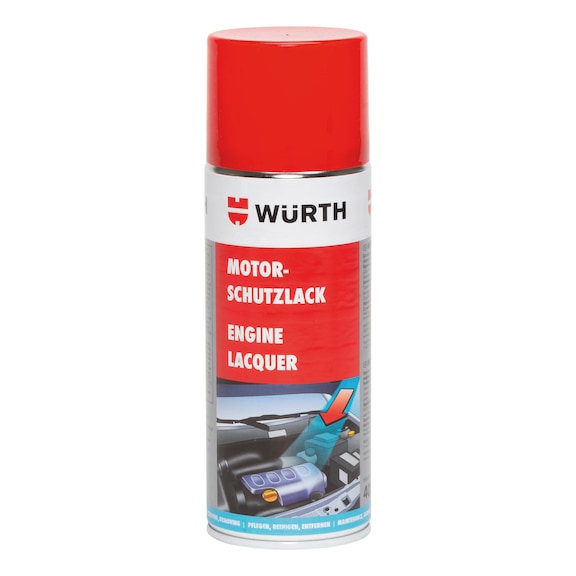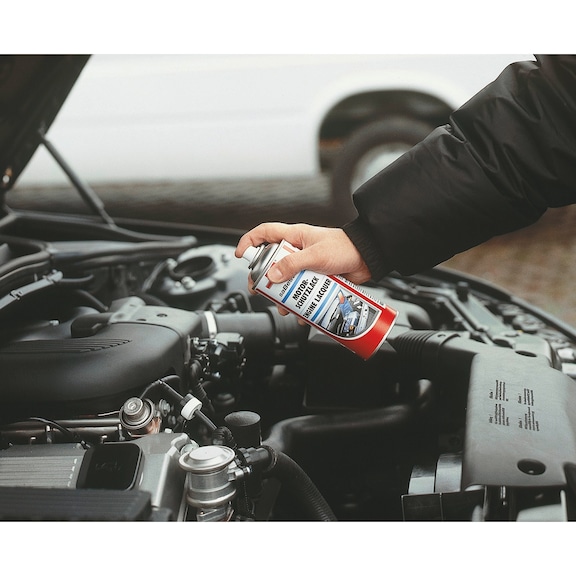For detailed information, other images and documents, please select individual articles from the following table.
Engine protective lacquer
High-quality acrylic paint-based sealing of the engine compartment
Register now and access more than 60,000 products
Variants
Register now and access more than 60,000 products
Call customer service: +43 50 8242 0
Prices for customers after login
New gloss on engines, assemblies, cables and hoses
Visually improving and maintaining/enhancing the value of engine compartments and assemblies
Forms a protective film
- Protects from wet, dirt from the road as well as road salt, thereby preventing corrosion
- Prevents leakage currents in electrical components
High degree of coating flexibility
High degree of flexibility on plastics, rubber hoses, cables etc.
Excellent temperature resistance (+80°C)
- Prevents the engine protective lacquer from discolouring
- Protects against softening of paints, and therefore against dust retention
Excellent adhesion to a wide variety of surfaces
High-gloss
Do not spray on painted surfaces or a hot engine.
Do not spray onto areas painted with synthetic resin.
See https://www.bmk.gv.at/themen/klima_umwelt/chemiepolitik/recht/eu_vo/ausgangsstoffe-explosiv.html
Engine protective lacquer provides protection against wet conditions, dirt and salt from the road and prevents corrosion. New gloss on engines, assemblies, cables and hoses. Visually improves and maintains/enhances the value of engine compartments and assemblies. Particularly suitable for refurbishing used cars
Shake the can well before use. Before use, thoroughly clean the areas to be treated with engine wash and allow to dry. With the ignition switched off, apply an even coat until a closed gloss film is formed. Turn the can upside down after use and spray until the valve is empty.
Select RAL-colour code
!! NOTE: On-screen visualisation of the colour differs from real colour shade!!







